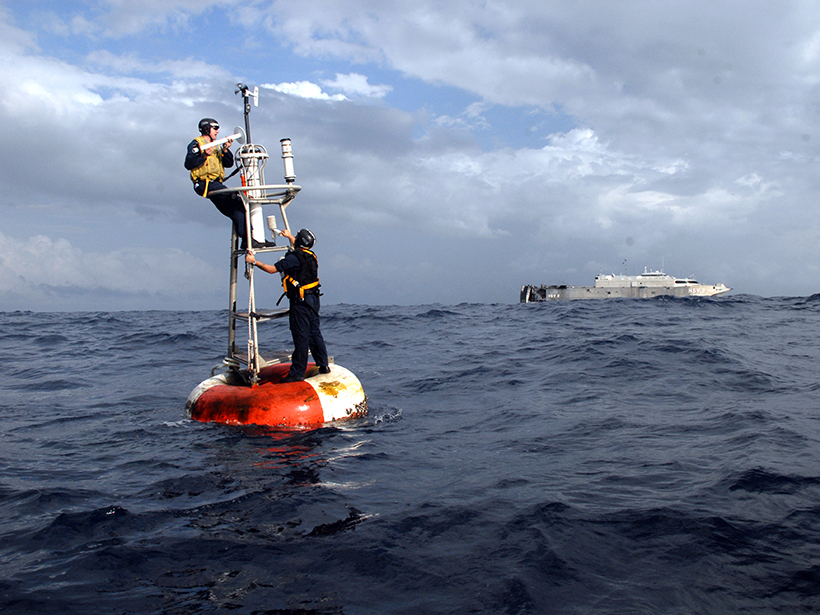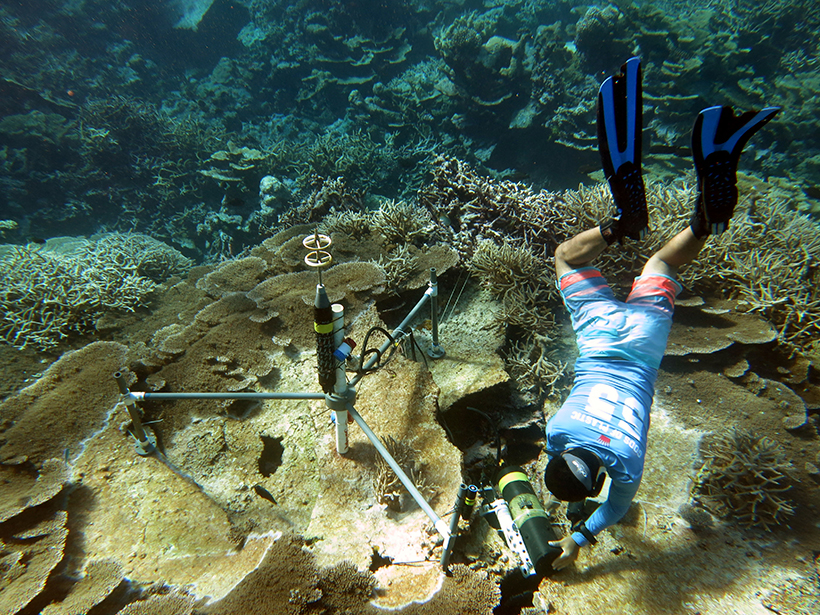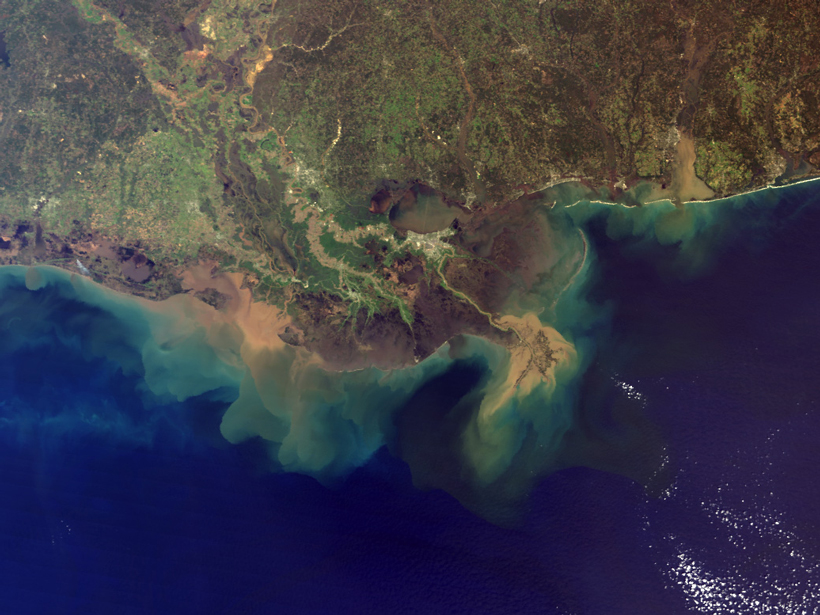European scientists use satellite sensors to detect light reflected off waves at the ocean's surface, which could help improve wave forecasts.
Oceans
Expanding a 300-Year Record of Marine Climate
Fourth International Workshop on the Advances in the Use of Historical Marine Climate Data; Southampton, UK, 18–22 July 2016
Exploring Ancient Ocean Acidification in the Rock Record
Scientists studying Earth's ancient oceans use a new method to measure ocean acidification and its effect on extinction events.
Scientists Develop New Tool to Monitor Reef Health
A first-of-its-kind system could reveal short-term changes in threatened reefs worldwide.
Deep Ocean Layers Continue to Heat Up
Researchers look at more than 3 decades of temperature trends in the deep ocean to understand the layers' energy budgets.
Saving Our Marine Archives
A concerted effort has begun to gather and preserve archives of marine samples and descriptive data, giving scientists ready access to insights on ancient environments.
What Proportion of River Nutrients Reaches the Open Sea?
Results of the first geographically based estimates of river nutrient supply indicate that 75% of dissolved nitrogen and 80% of phosphorus reach the open ocean.
Swirling Eddies in the Antarctic May Have Global Impacts
A new model examines how eddies in the Antarctic Circumpolar Current affect volume transport of the world's strongest current.
Déjà Vu? Ocean Warmth Melted Ancient West Antarctic Ice Shelf
Clues in seafloor sediments reveal that relatively warm water beneath western Antarctic ice shelves, a major factor in today's massive ice sheet retreat, also fueled some past ice loss.
Tiny Creatures Form Massive, Bright Ring Around Antarctica
Dense algae populations in the Great Calcite Belt could cause carbon dioxide release from the ocean into the atmosphere.









